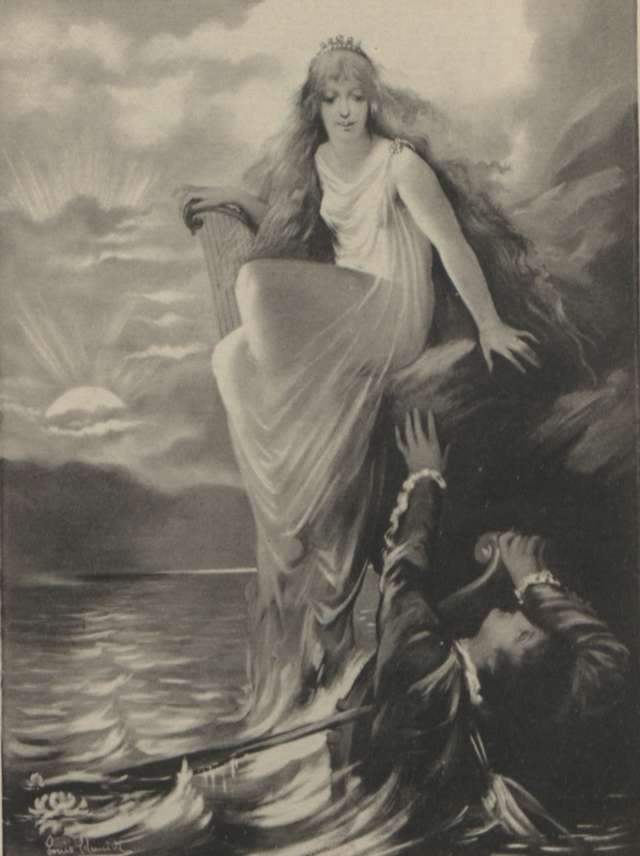I cannot tell why this imagined
Despair has fallen on me;
The ghost of an ancient legend
That will not let me be…
So begins Heinrich Heine’s famous poem, The Loreley, and it’s an apposite place to start: this is indeed one ancient legend that will not let me be. I’ve been spellbound by the legend of the Loreley (or Lorelei, depending on which spelling you prefer) ever since I read Heine’s poem as a teenager. This is appropriate, as the mythical Loreley is a siren of sorts, luring the boatmen of the Rhine to their deaths. Sadly, however, it seems that the legend is not quite so ancient after all; in fact, it seems to date back no further than 1801, when Clemens Brentano composed the ballad Zu Bacharach am Rheine.

The air is cool, and twilight
Flows down the quiet Rhine;
A mountain alone in the high light
Still holds the lingering shine.
In Brentano’s poem, Lore Lay, a beautiful young woman, is accused of bewitching men and bringing them to their deaths. As a punishment, she is banished to a nunnery. On the journey thereto, she arrives at the eponymous Lorelei rock on the banks of the Rhine. She climbs to the summit, hoping to gaze upon the river one last time, and imagines that she can see her lost love in the water. She falls to her death – and, presumably, continues to haunt that stretch of the river ever after.
The last peak rosily gleaming
Reveals, enthroned in air,
A maiden, lost in dreaming,
Who combs her golden hair.
Heinrich Heine later expanded on Brentano’s theme in The Loreley. Here, the spirit is envisaged as a true siren, sitting on the rock above the river and singing. Boatmen, hearing her song, are so enchanted that they forget time and place and are swept to their deaths. Eerily, this stretch of the Rhine is indeed hard to navigate, and has a history of tragic accidents.

Combing her hair with a golden
Comb in her rocky bower,
She sings to the tune of an olden
Song that has magical power.
Rather hauntingly, the myth of the Loreley finds an echo – literally – in the Lorelei rock itself, which apparently owes its name to an old German word for “murmuring”. The heavy currents around the rock, and a small waterfall, conspire to create a murmuring sound, which is amplified by the rock. It’s not such a large step, surely, from the whispering of the river to the song of the Loreley.

The boatman has heard; it has bound him
In the throes of a strange, wild love;
Blind to the reefs that surround him,
He sees but the vision above.
Sadly, information about the Loreley seems to be hard to find, and harder still to authenticate, even in the vast stew of information that is the Internet. But this legend continues to enchant. The Loreley may be of relatively recent origin as folktales go, but I think she’ll be captivating people for a long time to come…
And lo, hungry waters are springing—
The boat and the boatman are gone…
Then silence. And this, with her singing,
The Loreley has done.
Translation of Heine’s poem by Louis Untermeyer

I had never heard of that legend, Mari; it would appear that my ignorance is limitless…Again, this is a legend about which you really must write a story.
To be fair, it’s not a particularly well-known legend, Lucinda, at least outside Germany. I only know about it thanks to reading Heine’s poem years ago in a very old children’s poetry book that happened to be hanging around in our house. That was all it took, though – instant fascination!
Every post you write makes me want to visit Europe. I’m afraid Loreley would have an easy time bewitching me.
The Rhine valley is certainly worth a visit, John – I’ve just returned from there, which is perhaps why the memory of this old tale came back to me. I didn’t encounter the Loreley, though this is probably just as well – she would bewitch me too!